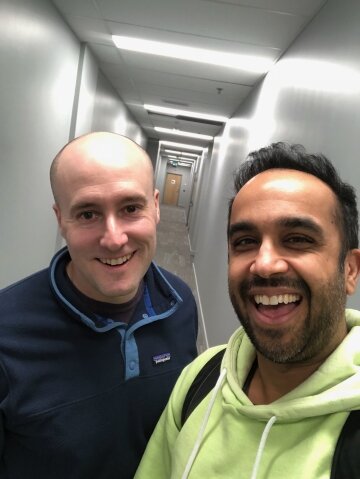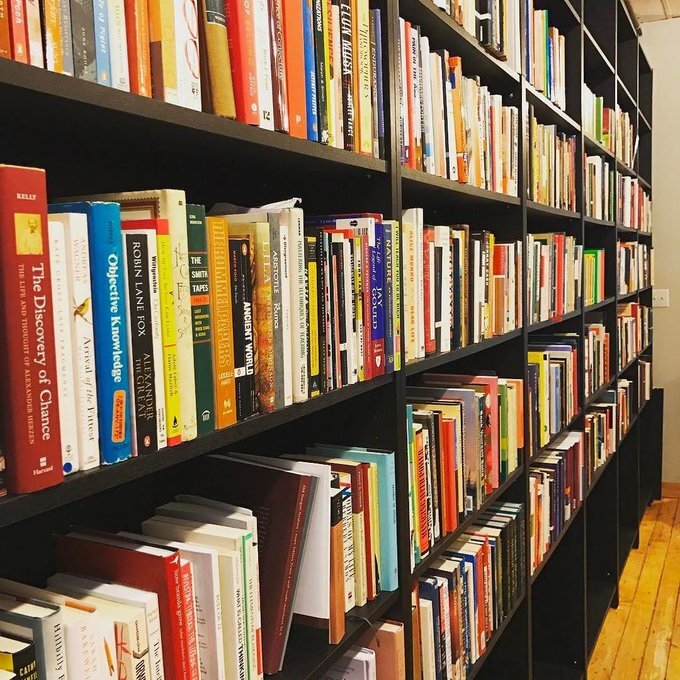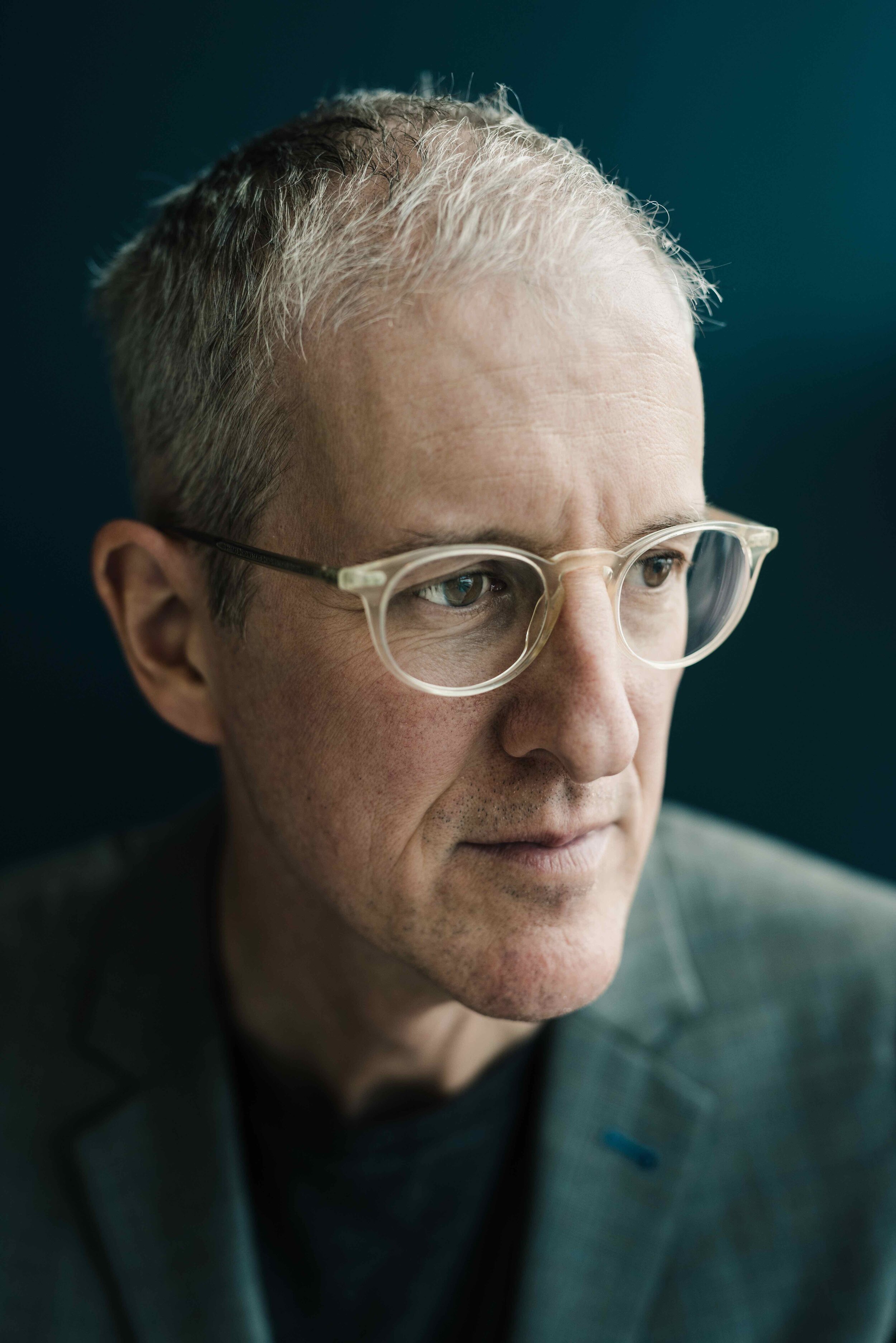So I’m walking down the street in downtown Toronto when I glance into a restaurant on my right and see a little chalkboard sign in the window which reads, “Your rights end where another person’s begin. Wear a mask.”
I found the sign to be a tiny display of civic activism. Asking people to wear masks! Demanding it, even. So tough in the service industry. I stop to snap a quick photo and the owner, Rhiannon, seeing me do this, steps outside.
We talk about how tough things are in the industry right now and discuss the challenges of enforcing masks and distance while trying to run a business.
I decide to order a breakfast burrito, which gives me time to engage Rhiannon in a longer exchange. Turns out she was an English teacher and loves reading so I turn on my recorder and record a short guerrilla chapter of 3 Books right on her patio. (Our second after Chapter 44 with Kevin the Bookseller! And our second bar patio chapter after Chapter 27 with Robin the Bartender.)
Listen into this honest conversation about school politics, engaging reluctant readers, tackling stereotyping, hangover poutine, and of course, Rhiannon the Restaurateur’s 3 most formative books.
As this pandemic endures, we need to support our local corner shops, variety shops, and neighborhood restaurants. The future is going to need small businesses!
Let’s give some love to the beautiful Rhiannon of Grapefruit Moon.
Let’s go!
What You'll Learn:
Why is revisiting books valuable?
How can a book inspire action?
How do you run a business with your mom?
What’s it like growing up on an island?
Why should we burn The Ugly Ducking?
CONNECT WITH rhiannon the restaurateur:
Word of the chapter:
Resources Mentioned:
Rhiannon’s first book [6:19]
Rhiannon’s second book [11:43]
Rhiannon’s third book [15:00]
The Testaments by Margaret Atwood
Swiss Family Robinson by Johann David Wyss
The Ugly Duckling by Hans Christian Andersen



















